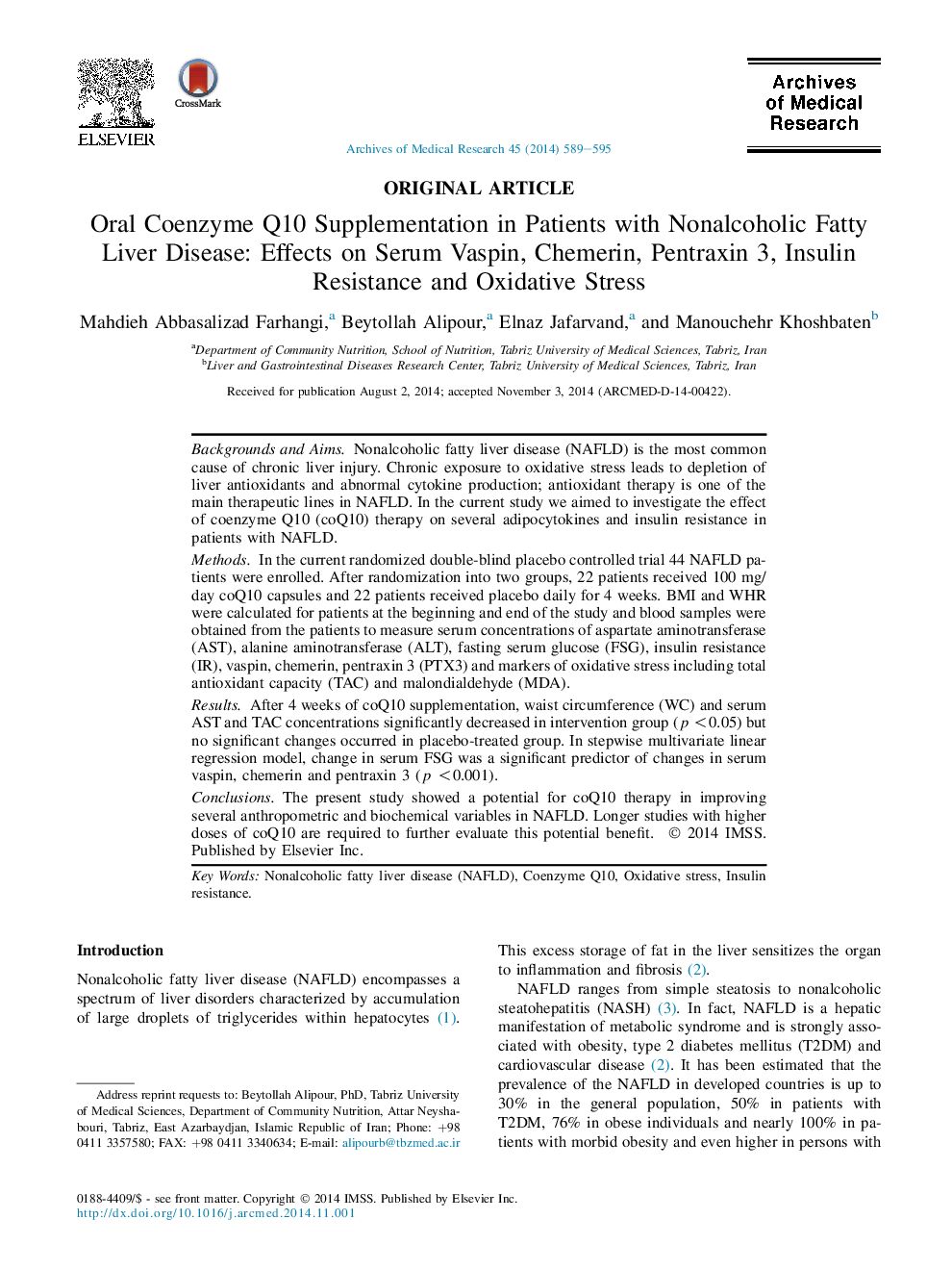| Article ID | Journal | Published Year | Pages | File Type |
|---|---|---|---|---|
| 6149142 | Archives of Medical Research | 2014 | 7 Pages |
Backgrounds and AimsNonalcoholic fatty liver disease (NAFLD) is the most common cause of chronic liver injury. Chronic exposure to oxidative stress leads to depletion of liver antioxidants and abnormal cytokine production; antioxidant therapy is one of the main therapeutic lines in NAFLD. In the current study we aimed to investigate the effect of coenzyme Q10 (coQ10) therapy on several adipocytokines and insulin resistance in patients with NAFLD.MethodsIn the current randomized double-blind placebo controlled trial 44 NAFLD patients were enrolled. After randomization into two groups, 22 patients received 100Â mg/day coQ10 capsules and 22 patients received placebo daily for 4Â weeks. BMI and WHR were calculated for patients at the beginning and end of the study and blood samples were obtained from the patients to measure serum concentrations of aspartate aminotransferase (AST), alanine aminotransferase (ALT), fasting serum glucose (FSG), insulin resistance (IR), vaspin, chemerin, pentraxin 3 (PTX3) and markers of oxidative stress including total antioxidant capacity (TAC) and malondialdehyde (MDA).ResultsAfter 4Â weeks of coQ10 supplementation, waist circumference (WC) and serum AST and TAC concentrations significantly decreased in intervention group (p <0.05) but no significant changes occurred in placebo-treated group. In stepwise multivariate linear regression model, change in serum FSG was a significant predictor of changes in serum vaspin, chemerin and pentraxin 3 (p <0.001).ConclusionsThe present study showed a potential for coQ10 therapy in improving several anthropometric and biochemical variables in NAFLD. Longer studies with higher doses of coQ10 are required to further evaluate this potential benefit.
